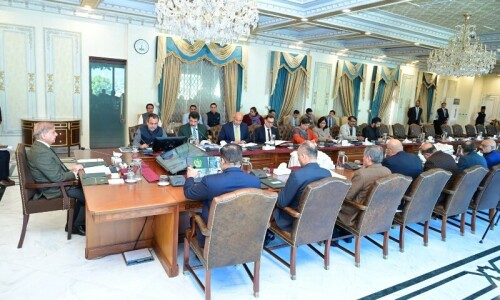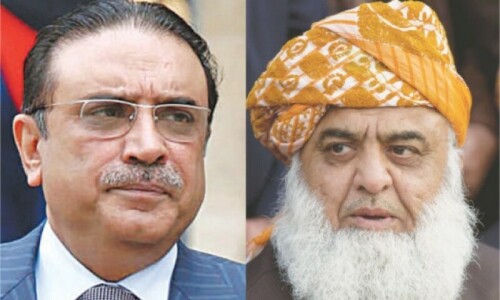WHILE tackling the twin menace of black money and tax evasion has always been a failure in Pakistan, recent reports show that many other countries have also proved ineffective in checking growth of the parallel economy and curbing flight of the untaxed money.
Wealth management specialists estimate that the world’s wealthy entrust around $16.5 trillion to private bankers. The share of Pakistanis is to the tune of $200 billion and Indians have mind-boggling figure of $1.4 trillion.
According to the World Bank’s Stolen Asset Recovery initiative estimates, the cross-border flow of proceeds from criminal activities, corruption and tax evasion is between $1 trillion and $1.6 trillion per year, about half of which come from the developing and transitional economies.
On October 1, 2010, the Swiss Parliament passed “Return of Illicit Assets Act” (RIAA)—a historic law making it possible for developing countries to recover the billions of dollars shifted to the Alpine state by unscrupulous individuals and companies. It is now possible for us to retrieve untaxed funds lying in Switzerland if the government seeks information regarding Pakistanis maintaining accounts there under Article 25(1) of the Avoidance of Double Taxation Treaty with Switzerland.
Berne, so far, has negotiated deals with large European neighbours, allowing them access to their citizen’s hidden money in Switzerland.. According to some estimates, in 2009 alone the Swiss banks held $722.4 billion of undeclared European assets. According to Boston Consulting Group, Switzerland singularly manages nearly one third of global offshore wealth.
European assets make up about 50 per cent of foreign assets held in Switzerland. A large portion of black money, originated from Germany. Italy having an endemic tax evasion problem recently offered its citizens a generous tax amnesty, which brought nearly 100 billion euros back home.
Pakistan is also facing a grim challenge of measuring and checking growth of black money. Till today, no effort appears to have been made by the National Accountability Bureau (NAB), Federal Board of Revenue (FBR), Federal Investigating Agency (FIA), Anti-Narcotics Force (AFN) to constitute a joint task force to unearth and check the outflow and inflow of the dirty money.
The policy makers must realise that a sound development strategy seeks to reduce the size of the informal economy and bring into the open resources that lie in the form of black money. Apart from such mechanisms as foreign exchange and tax amnesties and exercises such as demonetisations, taxation is used as a tool to tap the resources inherent in these areas.
According to a conservative estimate, tax evaders annually deprive the country of revenue of over $10 billion—but the government does nothing about it. The FBR has failed to tap untaxed money despite borrowing a whopping $100 million for Tax Administration Reforms Programme (TARP). Every year, billions are transferred to foreign countries.
Successive governments, instead of dealing with this issue with an iron hand, have been appeasing tax evaders through various laws and amnesty schemes. The result is obvious. There is an ever-growing informal economy undermining national growth and promoting lack of transparency in all spheres of life. Political culture is fraught with patronising those having money power and control over economic resources —both, anti-thesis of a true democratic set-up.
All steps and schemes taken in the past to document informal economy have miserably failed. The present enormous size of underground economy is symptomatic of a deep illness of the system where the corrupt prosper and the honest suffer, the rich thrive and the poor strive yet starve.
The last tax amnesty scheme, announced by the Federal Board of Revenue (FBR) under the name of ‘Tax Investment Scheme,’ was yet another attempt to protect tax evaders, asking them to pay just two per cent of fair market value of their untaxed incomes and assets with no question to be asked about their sources.
Even this failed like all previous schemes. It was a wrong move to try to “persuade with helplessness” the taxpayers without realising that it is they who now control the State and are least pushed to whiten their colossal wealth lying abroad. This scheme further shattered the confidence of law-abiding citizens in the system of governance. .
One of the worst consequences of black money is its pernicious effect on the general moral fabric of society. It puts integrity at a discount and places a premium on vulgar and ostentatious display of wealth. This shatters the faith of the common man in the concept of dignity of honest labour and virtuous living.
The ill-gotten wealth is like a cancerous growth in the country’s economy. It is time that the government constitutes a National Commission to determine the size of black money and suggest ways to bring it into formal economy.














































Dear visitor, the comments section is undergoing an overhaul and will return soon.